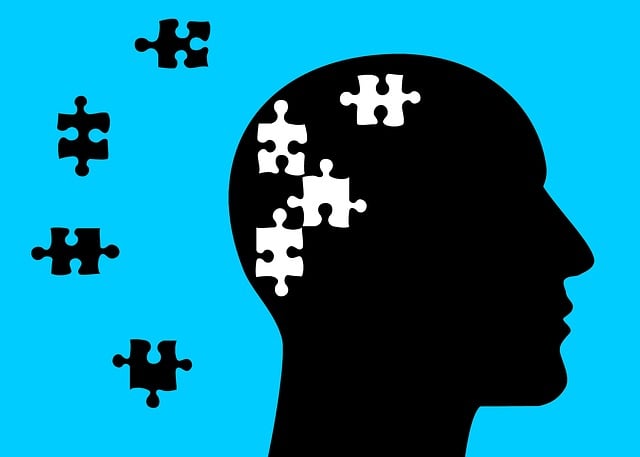Mental wellness programs in Littleton, focusing on therapy, support, and mood management, are evaluated through independent medical assessments like Littleton Independent Medical Evaluations (LIMET). These evaluations track progress, assess symptom improvements, and guide program enhancements. Using a combination of literature reviews and data analysis, including standardized questionnaires and clinical interviews, LIMET ensures tailored interventions for stress management, mood stabilization, and improved overall wellness, contributing to best practices in mental health care.
“Explore effective evaluation methods for mental wellness programs, including independent medical evaluations (IMEs) tailored for therapy settings. This comprehensive guide delves into the essential practices of assessing and measuring the impact of mental health initiatives. From understanding the unique needs of mental wellness programs to leveraging literature review and data analysis, we uncover powerful techniques.
Learn how IMEs in Littleton can optimize therapy outcomes and gain insights into the key role of outcomes assessment in evaluating mental health programs.”
- Understanding Mental Wellness Programs and Their Evaluation Needs
- Methods for Conducting Independent Medical Evaluations (IMEs) in Therapy
- The Role of Literature Review and Data Analysis in Program Evaluation
- Measuring Impact: Outcomes Assessment Techniques for Mental Health Initiatives
Understanding Mental Wellness Programs and Their Evaluation Needs

Mental wellness programs are designed to support individuals in managing their emotional and psychological well-being. These initiatives can range from individual therapy sessions to group support meetings, stress management workshops, and mood management interventions. Evaluating the effectiveness of such programs is crucial for ensuring they meet the unique needs of participants and make necessary adjustments to maximize benefits. In light of this, independent medical evaluations play a pivotal role in understanding the impact and outcomes associated with mental wellness initiatives, including Littleton Independent Medical Evaluations.
These evaluations are essential tools for assessing progress, gauging improvements in symptoms, and identifying areas where additional support or modification within the program might be required. By incorporating such assessments, organizations hosting these therapy sessions can foster a more confident and supportive environment, encouraging open communication about mental health challenges. This, in turn, enables them to organize and deliver tailored interventions that effectively address stress management, mood stabilization, and overall wellness goals of participants.
Methods for Conducting Independent Medical Evaluations (IMEs) in Therapy

Evaluating mental wellness programs is a multifaceted process, and one crucial component is the Independent Medical Evaluation (IME). In therapy contexts, particularly within the Littleton community, IMEs serve as an objective assessment tool to gauge a client’s progress and diagnose any co-morbid conditions. These evaluations are conducted by trained professionals independent of the therapeutic setting, ensuring impartiality. The process involves comprehensive reviews of medical history, current symptoms, and relevant psychological assessments.
For therapy centered around Compassion Cultivation Practices or Mind Over Matter principles, IMEs can offer valuable insights. By integrating community outreach program implementations, therapists can gather detailed information about clients’ overall well-being. This data is essential for tailoring treatments effectively, ensuring that the program’s goals are met, and facilitating positive mental health outcomes in Littleton and beyond.
The Role of Literature Review and Data Analysis in Program Evaluation

A comprehensive evaluation of any mental wellness program hinges on two key components: a thorough literature review and robust data analysis. The Littleton Independent Medical Evaluations Therapy (LIMET) approach emphasizes the importance of understanding existing research and evidence-based practices within the field of mental health. By conducting a meticulous literature review, evaluators can identify successful strategies, emerging trends, and best practices that have been proven effective in treating specific conditions or populations. This process ensures the program aligns with current scientific knowledge and offers evidence-supported interventions.
Data analysis plays a pivotal role in assessing the program’s impact and effectiveness. It involves collecting, organizing, and interpreting quantitative and qualitative data to measure outcomes related to Burnout Prevention, Stress Management, and Emotional Healing Processes. This method allows for a nuanced understanding of participants’ experiences, improvements, and areas that may require adjustment or further exploration. Integrating these analytical techniques enables evaluators to provide actionable insights, inform program enhancements, and contribute to the broader body of knowledge in mental wellness program evaluation.
Measuring Impact: Outcomes Assessment Techniques for Mental Health Initiatives

Measuring impact is a crucial aspect of evaluating mental wellness programs, ensuring that initiatives effectively address the intended outcomes. One powerful method is through outcome assessment, which involves tracking changes in participants’ mental health status before and after therapy sessions. This can be achieved using various tools, such as standardized questionnaires and clinical interviews conducted by Littleton Independent Medical Evaluators. These evaluations provide a comprehensive picture of an individual’s mental state, including improvements in symptoms, self-esteem, and overall functioning.
By employing these assessment techniques, mental health professionals can gain valuable insights into the program’s success. For instance, identifying reductions in anxiety or depression levels through structured questionnaires allows for data-driven decisions. Additionally, risk management planning benefits from such assessments, as they help professionals anticipate potential challenges and tailor interventions accordingly. This holistic approach not only guides the immediate treatment process but also contributes to evidence-based mental health policy analysis and advocacy.
Evaluating mental wellness programs is a multifaceted process that requires a blend of qualitative and quantitative methods. From understanding program needs to conducting independent medical evaluations (IMEs) in therapy, each step plays a crucial role in assessing effectiveness. Literature review and data analysis provide insights into best practices while outcome assessment techniques help measure the impact on individuals’ mental health. By integrating these evaluation methods, such as Littleton Independent Medical Evaluations for Therapy, professionals can ensure that mental wellness initiatives are not only well-designed but also make a tangible difference in people’s lives.














